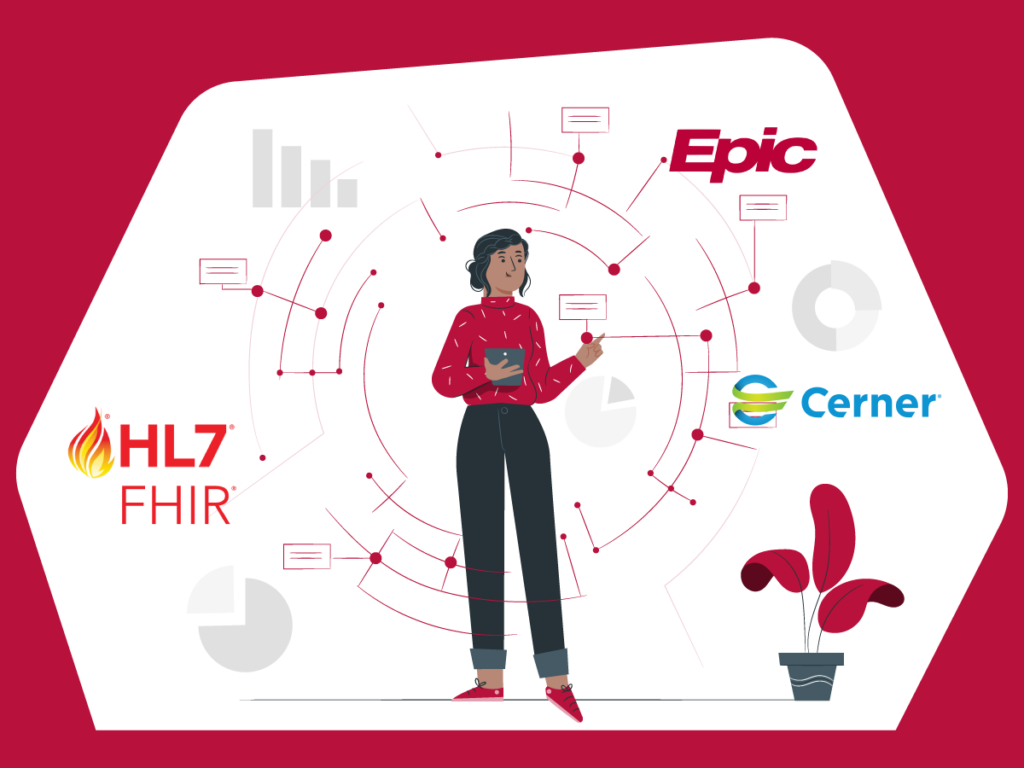
FHIR Standard Adoption: Challenges Facing the Healthcare Industry
The Fast Healthcare Interoperability Resources (FHIR) standard was introduced with the promise of revolutionizing healthcare data exchange by providing a modern, flexible, and easy-to-use framework for integrating disparate systems. FHIR allows healthcare organizations to share clinical information seamlessly across electronic health records (EHRs), apps, and devices. However, despite its potential, the adoption of FHIR across the healthcare industry has been slower than anticipated. Multiple challenges, from technical barriers to compliance concerns, have created roadblocks to widespread FHIR implementation.
Technical Integration Complexities
One of the primary issues hindering FHIR adoption is the technical complexity involved in integrating FHIR with existing legacy systems. Many healthcare organizations use outdated EHR platforms that are not designed to support modern interoperability standards. These systems require significant modifications to communicate effectively using FHIR. Additionally, many healthcare providers use multiple systems from different vendors, each with its own data format, making it difficult to standardize information sharing across platforms.
Inconsistent FHIR Implementations
Another challenge is the inconsistent implementation of FHIR across different healthcare systems. While the FHIR standard provides a framework for data exchange, it offers flexibility in how certain data elements are represented. This has led to variations in how FHIR is implemented from one organization to another, creating compatibility issues. As a result, the interoperability benefits of FHIR are diminished, as healthcare providers still struggle to exchange data smoothly between systems that interpret FHIR differently.
Lack of Resources and Expertise
Many healthcare organizations, especially smaller clinics and practices, face a lack of resources and expertise to implement FHIR successfully. The cost and complexity of transitioning to a FHIR-compliant system can be prohibitive, particularly for organizations with limited IT budgets. Additionally, there is a shortage of skilled professionals who understand both the technical intricacies of FHIR and the clinical workflows it must support. This gap in expertise leaves many organizations ill-equipped to implement the standard effectively.
Compliance and Privacy Concerns
Healthcare providers must also navigate the complex regulatory environment surrounding patient data privacy and security, which can slow down FHIR adoption. Compliance with HIPAA and other data protection laws requires meticulous attention to how patient information is accessed, shared, and stored. While FHIR offers robust security features, integrating it into legacy systems or ensuring proper handling of sensitive data during transmission remains a concern for many healthcare organizations.
The Role of Bespoke FHIR Applications
Custom-developed FHIR solutions offer a way to address many of these challenges. Instead of relying on off-the-shelf software, which may not fully address the unique needs of each healthcare provider, bespoke FHIR applications can be tailored to fit specific clinical workflows and technical environments. These custom solutions ensure smoother integration with legacy systems, provide a more consistent implementation of the FHIR standard, and address the security and compliance concerns unique to each organization.
Itirra: Leading the Way in FHIR Implementation
Itirra, a Washington-based boutique health tech lab, is at the forefront of developing and deploying bespoke FHIR applications for healthcare organizations. With deep experience in integrating FHIR with complex systems like Epic and Cerner, Itirra offers tailored solutions that address the specific adoption challenges faced by its clients. Itirra works closely with healthcare providers to create secure, scalable FHIR implementations that improve interoperability and enhance patient care while ensuring compliance with stringent data protection laws.
Overcoming FHIR Adoption Barriers with Itirra
By leveraging Itirra’s expertise in FHIR application development, healthcare organizations can overcome many of the technical and operational challenges slowing down FHIR adoption. Itirra’s bespoke solutions provide a customized pathway for integrating FHIR with existing systems, ensuring data flows smoothly and securely between different platforms. Whether it’s addressing technical complexities, ensuring consistent FHIR implementations, or navigating regulatory hurdles, Itirra empowers healthcare providers to fully realize the benefits of FHIR and drive the future of healthcare interoperability.
Contact Itirra today to learn more!

